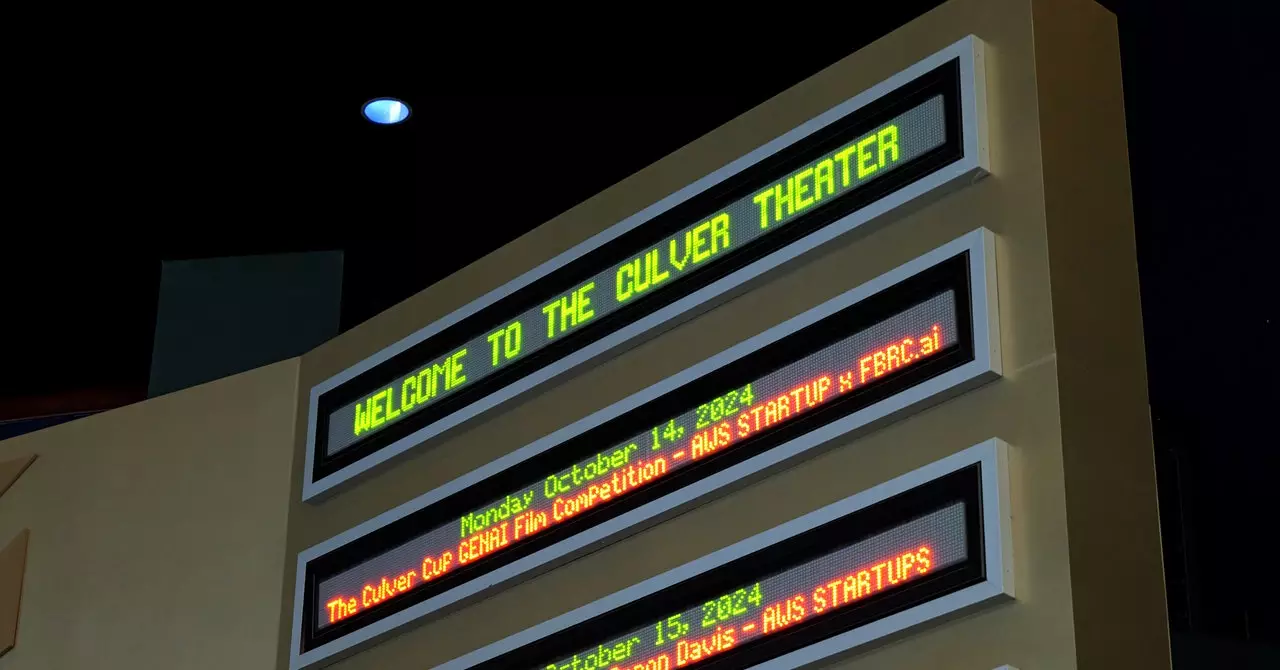As the landscape of filmmaking evolves with technology, the essence of storytelling remains a cornerstone that transcends digital advancements. Meta Puppet, a filmmaker who recently showcased his short film “Mnemonade,” underscores that while the methods of film creation may evolve, the foundational principles of storytelling are timeless. He emphasizes that the emotional weight of a narrative is what resonates with audiences. Puppet ingeniously employed artificial intelligence from ElevenLabs, a well-known tech firm in Silicon Valley, to perform various character voices, thereby enriching the emotional depth of his film that grapples with themes of memory and loss.
The Hesitations of Traditional Hollywood
The transition to incorporating AI technologies in film is met with mixed feelings within Hollywood, as highlighted by filmmaker Maddie Hong. She acknowledges the industry’s understandable caution regarding AI, pointing out potential legal ramifications and the risks of copyright infringements that could arise during the content generation process. Studios are also wary of maintaining image coherence across a plethora of platforms, considering the need for visual integrity in an ever-expanding digital marketplace. Such hesitations, however, could slow down the pace of innovation, potentially missing the opportunity for cinematographers to explore new narrative avenues.
AI as a Catalyst for Creativity
Despite the trepidations, proponents like Amit Jain co-founder of Luma, suggest that generative AI filmmaking might offer traditional studios enhanced flexibility regarding their budgets and the diversity of content. In a Hollywood landscape largely dominated by franchises and remakes, Jain argues that generative technology could pave the way for original ideas. By allowing filmmakers to experiment with lower budgets, it opens doors for diverse narratives that resonate more authentically with audiences, challenging the established criteria of success. This innovation could foster an ecosystem where upgrading original storytelling could bolster not only the industry’s vibrancy but also the careers of those devoted to true filmmaking.
Nonetheless, concerns about the implications of AI on employment within the entertainment industry cannot be overlooked. A revealing survey conducted earlier in the year indicated that a significant majority—75 percent—of entertainment executives believe that generative AI has already led to job cuts or transformations within departments. While generative AI has heralded the emergence of new job roles, there are serious doubts regarding whether these opportunities can adequately compensate for those that have been lost. The nuanced ramifications of integrating AI into the filmmaking process invite further discussion regarding the profession’s future.
The conversation about AI in cinema raises an essential question: can we balance innovation with traditional craftsmanship? While technology like AI can indeed enhance the creativity and efficiency of film production—much like the piano gives rise to music—there remains the necessity of creative expertise. As Puppet likens generative AI to a musical instrument, he suggests that mastering its use to create artistic masterpieces requires a diverse skill set, which can be both advantageous and challenging.
Although it is enticing to consider assembling a team of friends to produce a low-budget feature film, the reality of the situation demands a broader vision. The likely impact of widespread AI accessibility on the industry merits cautious consideration. The tools that promise to streamline production workflows must also be negotiated with concerns about ethical practices and the financial implications for traditional contributors to the industry.
As filmmakers navigate the uncertain waters of AI technology, the importance of storytelling persists as the heart of cinematic expression. Engulfed by concerns about job displacement and copyright risks, the industry stands on the brink of transformation with tools that could redefine creativity. Ultimately, it is the blend of innovative technology and depth of narrative that will determine the future of film. With the right balance, AI could not just coexist with traditional methods, but also possibly elevate the art of storytelling to new heights.

